How News Sources Portray Black Lives Matter Politicization Policies
This chart shows how major news sources across the ideological spectrum frame black lives matter politicization policies, from left to right-leaning perspectives.
Bias in the news increases the complexity of understanding the actions of and responses to political movements like Black Lives Matter. The Democratic and Republican opinions on Black Lives Matter are at odds, making reporting on the movement skew depending on the affiliation of the media and increasing the importance of literacy to traverse mixed news and misinformation.
Black Lives Matter politicization refers to the politicization that precipitated from the Black Lives Matter movement protests. Black Lives Matter is a decentralized movement that draws attention to the second-class status that black Americans face based on the color of their skin, specifically focusing on police brutality and racially motivated violence against Black people, with the goal of addressing systemic inequalities that promote racism.
Democrats largely hold positive Black Lives Matter policy goals, standing with the movement with a firm denunciation of racially motivated systemic inequalities. Republicans, in contrast, criticize the movement for being dangerous and divisive, especially in consideration of disruptive protests.
The movement, formed in 2013, has varied in popularity and interest appeal as shown by Google Trends data, which details the density of Google searches on the topic. Interest spiked in mid-2020 following the death of George Floyd by a police officer, and has since declined.
The Democratic Stance on Black Lives Matter
The Democratic Party’s Black Lives Matter stance has traditionally been overwhelmingly supportive, due to its consistency with the shared goals of police reform, criminal justice reform, and economic justice initiatives. They are also consistent in their views on racial inequality and systemic racism as prevalent and persistent problems in the United States.
Polling from September 2021 conducted by Pew Research Center indicated that 85% of Democrats express some support for the Black Lives Matter movement and protests, with 48% strongly supporting it. 78% of Republicans and those leaning toward the GOP oppose the movement, with 58% strongly opposing it. This is supported by another survey, conducted in November 2021 by Civiqs, which found that 85% of Democrats support the Black Lives Matter movement, compared to 3% of Republicans.
The more recent 2023 poll by the Pew Research Center reflects a decrease in support for the movement over time. At the time of the polling, 51% of Americans expressed some level of support for the movement, down from the 56% of the previous year’s poll. The decrease is attributed to a decrease in white support specifically, as the levels of Black and Hispanic Americans remained steady since 2022. The new poll showed a similar level of support from Democrats (84%) to the shares seen in the past, while 82% of Republicans opposed the movement.
Politicians Who Support Black Lives Matter Politicization Rights
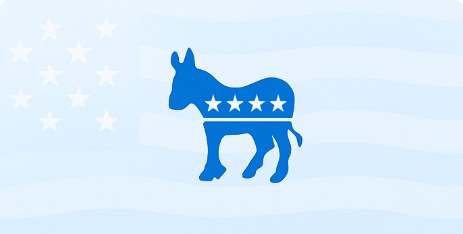
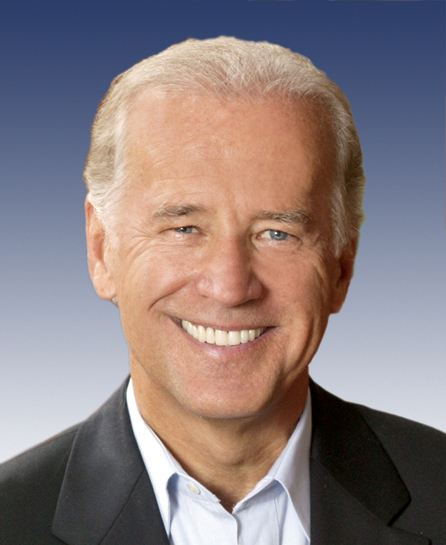
Joe Biden
“When Black small businesses grow, the community benefits. Since Kamala and I entered office, Americans have filed 15 million applications to start new businesses. Its led to the fastest growth in Black business ownership in 30 years.”
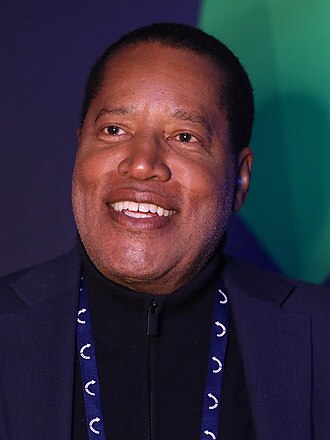
Larry Elder
“You use the word "we." What gives this person the power to talk about "we"? I just saw a poll recently that said the majority of Black Americans are either extremely proud or very proud to be American. So this individual was speaking for himself, not for Black people.”
The Republican Stance on Black Lives Matter
The Republican stance on Black Lives Matter remains overwhelmingly negative. Their view has been that the movement is dangerous and divisive, holding rallies that unnecessarily disrupt the flow of life for others and end in property damage, looting, and injury. Some also criticise the movement’s founders for identifying as Marxists. Their value for local governance runs against the demands of Black Lives Matter for reforming or even defunding the police.
In the wake of the stir caused in the height of the movement’s action in 2020, some felt that the topic of racial discrimination and the movement’s stance on police brutality had been belabored beyond reason, so conversations swung to other topics to compensate for the unbalanced spotlight. This was especially true for Republican viewpoints, which sought to draw attention to other issues.
Politicians Who Oppose Black Lives Matter Politicization Rights
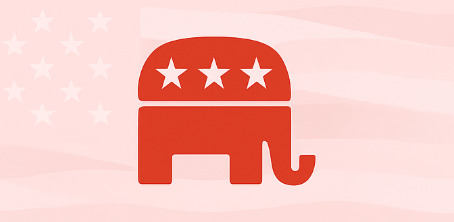

Donald Trump
“Left-wing mobs have torn down statues of our founders, desecrated our memorials and carried out a campaign of violence and anarchy... Whether it is the mob on the street, or the cancel culture in the boardroom, the goal is the same: to silence dissent, to scare you out of speaking the truth and to bully Americans into abandoning their values.”
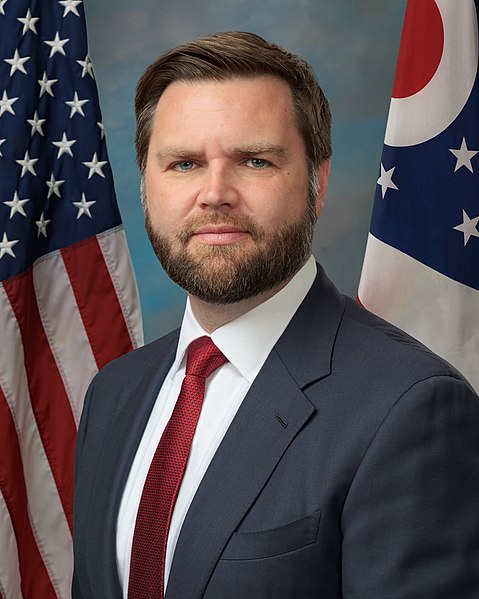
JD Vance
“(Referring to BLM) Who benefits most when small businesses on Main Street are destroyed? Who wants to see their competitors unable to deliver goods and services to people, so that you get it delivered in your brown Amazon box? Jeff Bezos.”
Policy on Black Lives Matter in the United States
The Black Lives Matter movement spurred significant policy changes regarding police accountability and implicit bias training, in line with Democratic values. While the movement lost visibility since the protests following George Floyd’s murder, Democrats continue to promote legislation aiming to decrease racial inequality and systemic racism.
While the Black Lives Matter policy changes have been more in line with Democratic values, Republicans mainly stand against the movement’s methods rather than expressing strong opposition to or a desire to roll back the changes resulting from those methods.
Other movements, such as Antifa, have been associated with Black Lives Matter due to sharing a few core values. Wikipedia defines Antifa as a “left-wing anti-fascist and anti-racist political movement.” In 2020, President Biden condemned Antifa. In the summer of 2019, a resolution calling for Antifa to be labeled as a domestic terror organization was introduced by Republican Senators Ted Cruz and Bill Cassidy. President Trump voiced his support on Twitter. In 2020, Rasmussen Reports’ national telephone and online survey found that 72% of Republicans support designating the “Antifa” movement as a terrorist organization compared to 32% of Democrats.”
A Brief History of Black Lives Matter Policy in the U.S.
The death of the 17-year-old Black high school student, Trayvon Martin, by the gunshot of neighborhood watch captain George Zimmerman in 2013 resulted in the formation of the Black Lives Matter movement. Zimmerman’s acquittal on the grounds of self-defense sparked the movement’s arguments for police reform and condemnation of racial bias in the force.
The movement hosted protests against police brutality, arguing for equal treatment by authorities and calling out the deaths of Black Americans at the hands of police officers. Some public figures, including sports stars, used their platforms to express their support for the Black Lives Matter messages.
While the movement has been characterized as violent, most of its demonstrations are largely peaceful, using social media tactics such as hashtag activism, direct action strategies like die-ins and marches, and employing art and political influence to spread their message.
However, not all protests were peaceful. The few that involved violence, vandalism, looting, or other destructive activities left a lasting impression on many people, associating anxieties and a negative connotation with demonstrations by the movement. These activities were sometimes instigated by the protesters themselves, but escalation often came from outside intervention efforts.
The height of the movement’s support fell in late 2020 following the death of George Floyd after Minneapolis police officer Derek Chauvin knelt on his neck for nine minutes. The officer and the three with him were convicted of Floyd’s death amidst the rapt attention of the nation. The murder became a rallying cry for the Black Lives Matter movement, with his repeated words while being restrained, “I can’t breathe,” used in chants and on signs at protests.
Some argue that the incident is more nuanced and has been doctored by the media to support BLM goals. They note that, in the full video of the incident, Floyd was saying “I can’t breathe” even before he was being restrained. They also point out that he had been influenced by the drugs he was on, Fentanyl and Meth, the first of which can induce wooden chest syndrome, which makes breathing difficult. In court, it was said that the hold Derek Chauvin used on Floyd was not something officers were trained in, but there is a depiction of such a hold—with the knee on the shoulder rather than the neck—in the officer training manual, which was not permitted to be used as evidence.
Contrary to those arguments, two autopsies were completed following Floyd’s death, and while they found that Floyd had a lethal amount of drugs in his system, the cause of death was not the drugs but the officer. Additionally, those who know about the hold said that such a hold was not appropriate for the extended length of time it was used, even if it would have been acceptable for a shorter period of time.
George Floyd’s death became an impactful point in the Black Lives Matter movement’s narrative, allowing the movement to exert greater influence and even garner international attention.
Other movements rose in response to the Black Lives Matter movement, such as Blue Lives Matter, which aimed to advocate for police voices and speak out against hate crimes committed against police officers. Critics of this countermovement worried that it deflected necessary attention from the issue of police reform.
Notably, the Black Lives Matter movement is not a single organization, but rather a decentralized network comprising various organizations that have adopted the label, such as the Black Lives Matter Global Network Foundation. The movement’s voice has become quieter in the years following its 2020 and 2021 peak as the nation focused its attention elsewhere.
What the Future Holds
The Black Lives Matter movement has lost some momentum over the years and gained more negative views from the American public. They will likely continue to advocate for police reforms, but focus more of their attention on issues of inequality and racism as they have been doing. Their ability to maintain or even regain momentum will depend largely on their adaptability and the presence of further inciting events.
To explore how each political party views other key policy topics, visit Biasly’s full list of Political Party Policy Stances.
To unlock more data-driven insights into media bias, explore political leanings with research-backed tools, and customize your news feed around what matters most to you, sign up for a Biasly Premium News Membership.











































